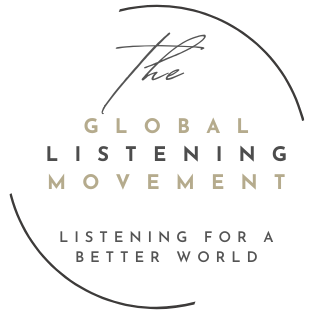By Corine Jansen
Listening is an ethical choice and the starting point of a healthy democracy.
It is impossible to read a newspaper or watch a talk show without encountering the statement: I don’t feel heard!
In today’s society, people are speaking more than ever before. Verbally mediated information flows in abundance through social media channels, talk shows, and hours of political debates. But as the number of opinions herein increases, and expression seems to be considered more important than opinion formation, the choice to listen seems to become less and less natural every day. Isn’t it ironic that in our country, where everyone is allowed a voice, the basis of communication, and listening, is such an underserved child?
Listening is a crucial and undervalued part of a functioning democracy. Indeed, listening goes far beyond merely hearing words. It means actually trying to understand others’ ideas to respect them. Listening also means hearing the concerns of others, even when it makes us uncomfortable, or those concerns are at odds with those arising from our own beliefs.
In a democracy, we listen to all voices, not just those who shout the loudest or stand out the most on social media or talk shows. Suppose we ignore or downplay the views of others. In that case, we reduce ourselves to an echo chamber of like-minded opinions and risk missing valuable insights and new perspectives.
Listening, then, is an ethical choice and involves a moral responsibility. It acknowledges the meaning and stratification of each person. It says, “I respect you as an individual, and your experiences and beliefs are valuable to me, even if we disagree.” We do not have to agree with every statement we hear, but we can pay sincere attention to it and try to understand where it comes from. Only in this way can we build bridges between different views and collaborate on shared solutions.
Listening is not THE solution, but it is an important start. It is the first step toward a more inclusive and sustainable society. Listening leads to greater understanding, and understanding can lead to empathy, respect, and, ultimately, collaboration. It is the foundation for building a shared vision for our future based on opinion formation rather than mere expression.
Democracy begins not in parliament but in the daily interactions between people. It begins when we are willing to be curious, open our ears and hearts, and say, “I hear you. Tell me more.”
The path to a healthy democracy is not easy, and there are no quick fixes. But listening is a good start. Therefore, let’s choose opinion formation rather than expression more often; let’s choose to listen more often.
